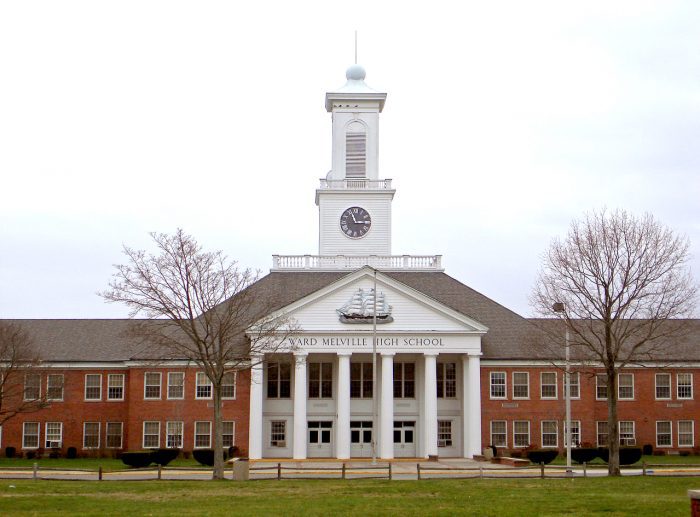By Mallie Jane Kim
Three Village Central School District will see at least 67 retirements across instructional and noninstructional staff this year, according to Deputy Superintendent Jeffrey Carlson. Those retirements, along with a restructuring of district administration, will allow Three Village to cut about 15 full-time positions through attrition and save an estimated $2.9 million.
Carlson explained at an April 3 school board meeting that staff adjustments will include three additional elementary teachers to help balance class sizes as well as the restoration of an administrative-level director of curriculum and instruction, though he pointed out the number of administrators will stay the same.
“Because of the retirements, that gives us a chance to look at different positions, and maybe there would be a different structure that would fit us better,” Carlson said.
The staff adjustments are part of budget plans to stay within this year’s 2.84% tax levy increase cap for the district, against the background of uncertainty in the state budget negotiations in Albany. New York’s budget dictates how much state funding goes to each district, and though it was supposed to land April 1, the process is still ongoing.
Carlson maintained his optimism that the $9 million in cuts to the district proposed by Gov. Kathy Hochul’s budget plan in January would not come to fruition, yet indicated the district administration has planned the 2024-25 school year budget with caution.
“We feel we’ve put a solid budget together,” Carlson told the board. “If we do wind up with a reduction in aid, then we will be prepared to make the recommendation for what gets cut.”
The district is proceeding with its budget planning as though state funding will come through. According to Carlson, that makes more sense than planning for hypothetical state aid cuts since what voters will choose whether to adopt on May 21 is a maximum budget amount.
“It doesn’t mean we have to spend that much money — it just means we can’t spend more than that,” he said.
Two board members push for advanced planning, taxpayer relief
Trustee Karen Roughley again pushed administrators for more advanced planning, suggesting a sort of vision board to help steer Three Village toward its goals, and account for probable mandates coming down the pike from New York State, like potential financial literacy requirements for graduation.
“If I had some sort of plan to say, ‘In the next one to two to three years, we want to increase the business department by three teachers because we want to add XYZ courses,’” she said, posing a hypothetical example. “Then we could see as we’re working through the budget with you guys that, ‘OK, maybe this is the year to add one of those in, and then next year maybe we can add the two more in.’”
Her colleague David McKinnon went further, suggesting the district halt any budget growth for 2024-25 over the current $230.9 million budget.
“I’m afraid it’s really now or never for local tax relief,” McKinnon said, pointing to this year’s state aid uncertainty and the likelihood that changes to future state aid would probably mean less money over time flowing from the state to the district, due to lower enrollment.
He added that though enrollment has been declining for more than a decade, residents have not seen any decline in their taxes. “Taxpayers have not had very effective representation in the budget process,” he said, indicating that’s why he ran for the board in the first place. “The result is obviously some pent-up frustration with the budgets.”
Superintendent of Schools Kevin Scanlon pointed out enrollment has leveled in the lower grades, indicating a move toward stabilization in student numbers. He added that the cost of educating students has gone up, and many of those rising costs are due to inflation or otherwise out of the administration’s control, like employee contracts, which are negotiated by the school board in conjunction with the relevant unions.
“Going from the 2.84% in tax levy [increase] now to a zero would definitely have a tremendous impact on our budget,” he said, suggesting class sizes would soar and the district would have to cut programs and close an elementary school by September. “While the taxpayers would have the relief, the students would suffer in my opinion in many ways.”
Board member Jeffrey Kerman took issue with the suggestion of further cuts, and with McKinnon’s assertion he is on the board to negotiate for taxpayers.
“We all represent the taxpayers — we also represent the students,” Kerman told McKinnon. “We try to negotiate with our unions and everything else, but we’re here for the students — to make sure our district remains the district that it is now, a wonderful district.”
The board is scheduled to adopt a budget at an April 17 meeting, and the budget will face voters on May 21.





